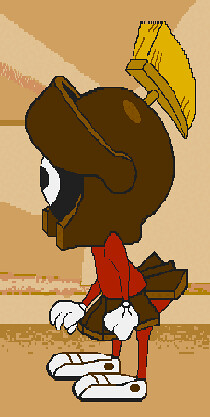The American Jewess: The Social Mores of 19th Century Jewesses (and Martians)
 By Rebecca Honig Friedman (cross-posted on Jewess). This is truly fascinating.
By Rebecca Honig Friedman (cross-posted on Jewess). This is truly fascinating.
A regular column in The American Jewess, "The Woman Who Talks" (a more politically correct way to say The Yenta?) was a place "for the ventilation of all subjects pertaining to woman: social, domestic, religious, literary, political, philanthropic, and so on-ad infinituz," according to its first installment.
But one particular column, from January of 1896, reads like a 19th century Emily Post, dictating proper social etiquette to contemporary American Jewesses. It reminds one that at one time people really did live like the characters in Henry James novels.
A surprising tidbit gleaned from the piece -- two weeks was considered appropriate notice for a wedding invitation! Consider it proof that people were so much less busy back then. (Or that they made much less of a deal about weddings.)
But the article's full of fun facts. Here are some of the choicest bits:
"People invited only to church or temple need not call on the bride nor send a present. The attention shown is too slight to warrant such returns. But every one invited to the ceremony or reception should send a present. It is nowadays absolutely de rigeur for the bride to write a note of thanks to every separate and distinct individual who has remembered her with a gift. There are two unpardonable displays of vulgarity of which I trust none of my readers are ever guilty. The first is to be late for a dinner. The second is to make your calling card do the duty imperative upon yourself of calling on your entertainers. I am sure it is little enough asked to call upon a person who has taken the trouble to give you pleasure. [What would she think of email? --RHF] The only social functions which release one from the obligation of a call of appreciation are afternoon teas and church or temple weddings. Personally I except the high tea, but society ordains otherwise."
While the above is still relevant in essence, the following we find rather archaic:
"In introductions always present the gentleman to the lady, the younger lady to the elder and the unmarried to the married. Between men age is usually the only consideration in making a presentation unless one is particularly distinguished. Make your introductions simply and easily. "Mr. Pine, Mrs. Olive," which elaborated means: "Mrs. Olive permit me to present Mr. Pine." A lady if seated need not rise to acknowledge introductions to gentlemen, but should never fail to do so when ladies are presented. It is rarely necessary to introduce on the street; but when this is done, in case of a gentleman, he should always turn and walk a brief space with the ladies, and not keep them standing. In acknowledging an introduction on the street a gentleman should lift his hat entirely. If he will bear in mind that once upon a time gentlemen remained uncovered the whole time they were talking to a lady on the street, he will find this but a slight effort."
Guess society men didn't do much heavy lifting back then.
The end of the column shares some small and random news items, revealing that "electricity for heating and cooking is rapidly being introduced" and, more fantastically:
 "Recent observations show beyond reasonable doubt that Mars is well supplied with air and water. The habitability of that planet seems therefore to be established, and it now only remains to discover some method of communication, a consummation not improbable to the science of the next century."
"Recent observations show beyond reasonable doubt that Mars is well supplied with air and water. The habitability of that planet seems therefore to be established, and it now only remains to discover some method of communication, a consummation not improbable to the science of the next century."
Reminding us that, over a century later, we're living in "the future," and yet still no contact with Martians. But if we do ever make contact, let's make sure to write a proper note. Surely interplanetary etiquette dictates one should.






